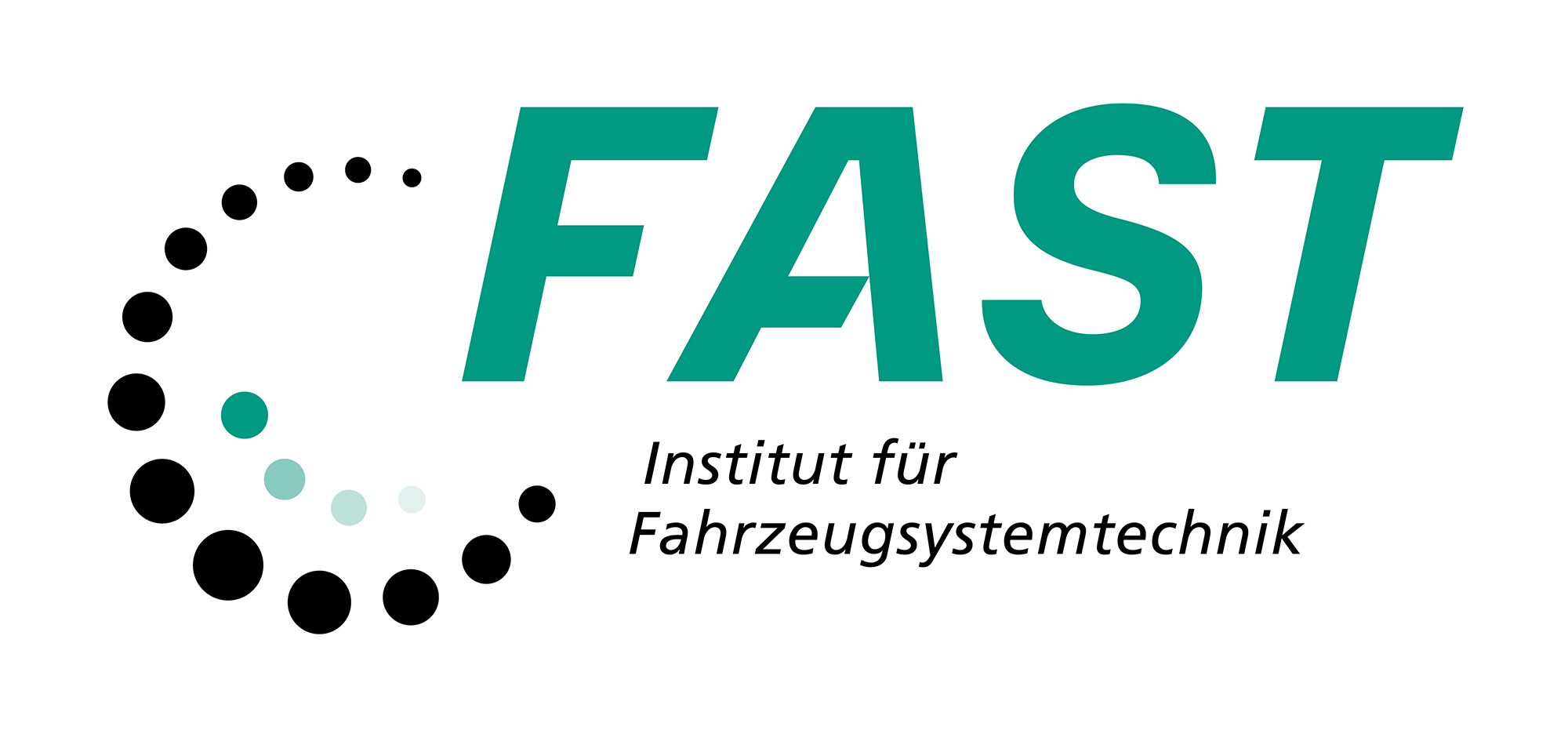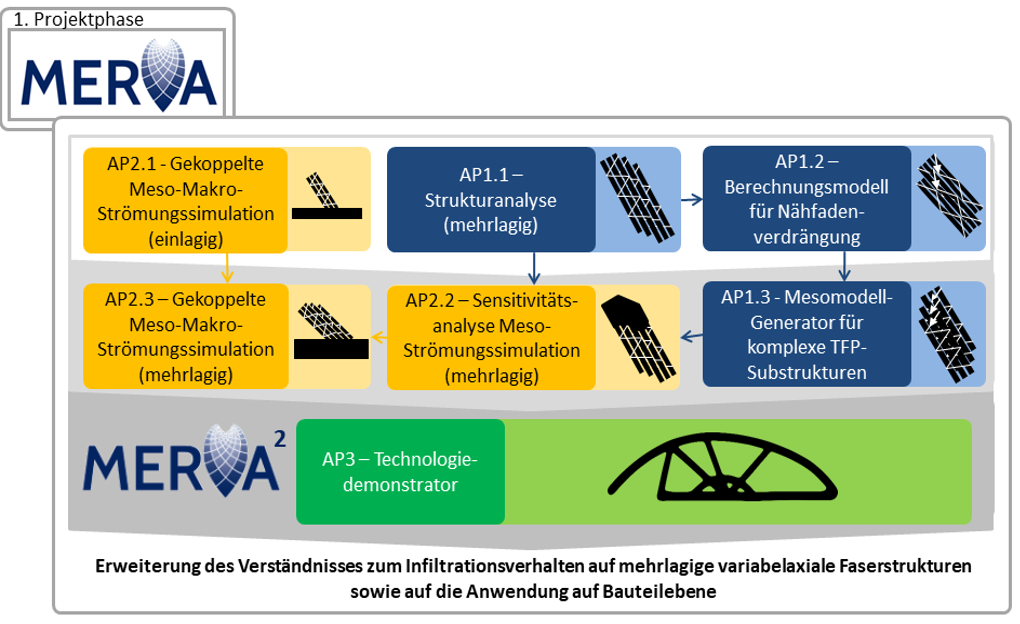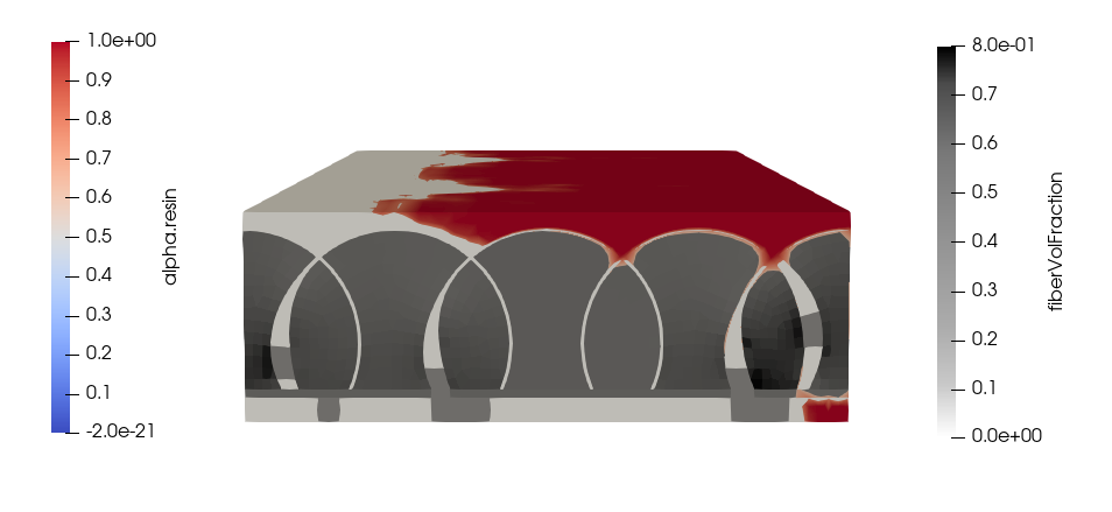DFG MerVa²
- Contact:
- Funding:
German Research Foundation (DFG)
- Partner:
KIT-FAST-LB, Leibniz-Instituts für Polymerforschung Dresden e. V. (IPF)
- Startdate:
01.02.2024
- Enddate:
31.01.2026
MerVa²
The research project MerVa² is the follow-up project to MerVa and deals with the numerical and experimental investigation of the infiltration behavior of load-bearing fiber-reinforced plastic (FRP) structures with variable-axial fiber architecture. This FRP construction method is considered to be particularly material-efficient and highly resilient, and in principle suitable for many load-bearing structural components.
In the second project phase of the joint project of the Leibniz Institut für Polymerforschung Dresden e. V. (IPF) and the Karlsruhe Institute of Technology (KIT), the focus of the work will be on investigations into the infiltration of multilayer structures in particular, as well as on the scalability of the flow simulation at component level and the associated requirements for coupled meso-macro modeling.
The challenge when considering multi-layer structures lies in the increased complexity of the semi-finished product structure due to the stitching of the layers, which results in a multi-dimensional flow front that cannot be represented by a simple superposition of several individual layers. The stitching creates flow channels through all layers as well as an additional compaction of the rovings, which leads to a highly heterogeneous filling behavior. The resin-bearing layers above and below the rovings, which were identified as dominating the flow behavior in the first project phase, overlap between the layers, reducing their influence on the overall behavior for thicker structures, while additional flow channels are created in the thickness direction.
The overall aim of the project is to understand the infiltration in the thickness direction of multilayer, variable-axial TFP structures and to be able to reliably map the flow behavior and possible defects.



